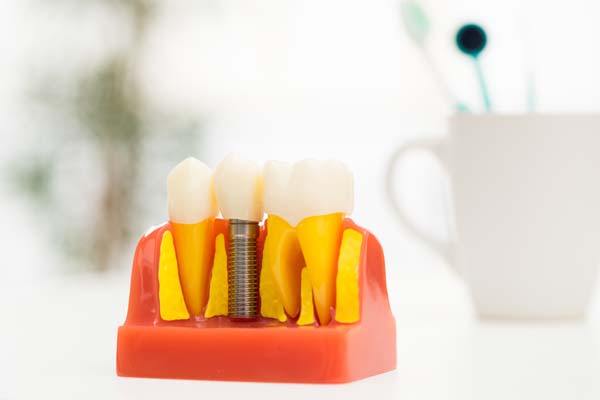4 Aftercare Tips for Implant Crowns

Implant crowns are a long-term solution to tooth loss that are easy to care for, but the process of receiving the new and beautiful replacement teeth is not always pleasant. To make the aftercare process following the placement procedure go as smoothly as possible, it is helpful to learn some aftercare tips from a dental professional.
4 Ways to care for your new implant crowns
Properly caring for implants after placement is essential to minimizing the risk of oral infection and keeping any discomfort that exists at a tolerable level until a full recovery is made. The following are four effective tips on how to care for your oral health after the placement of the implants.
1. Keep your mouth clean
Perhaps the most important care tip following implant crown placement is to keep the mouth as clean as possible. There is likely to be a fair amount of swelling and discomfort that exists, and there may even be some minor bleeding as well. Patients can keep the discomfort from becoming intolerable and prevent oral health complications such as an infection from developing by keeping the mouth clean through a good daily oral care routine. The routine should include brushing several times a day and using mouthwash as directed by the dental professional.
2. Eat a soft diet and drink water
One of the biggest changes to prepare for after implant placement is the patient’s diet. Many foods will be off-limits for the first few weeks, and it is important to keep chewing at a minimal level. To do so, stick primarily to soft foods such as oatmeal, yogurt, scrambled eggs and soup. It is also helpful to drink water throughout each day to wash away any excess bacteria that develop in the mouth.
3. Check for complications
It is also important to check for any signs of complications during the recovery process and to notify your dental professional if any issues develop to ensure the problem does not worsen or linger for longer than what is necessary. Signs to check for include excessive swelling, moderate to severe bleeding, an intolerable amount of pain and a dental implant that feels loose. While moderate discomfort and other symptoms are to be expected, anything severe might be a sign of a more serious issue such as an implant failure or an oral infection.
4. Make all scheduled dental visits
Your dental professional overseeing the implant crowns treatment process is likely to schedule follow-up visits to ensure the recovery process goes smoothly and that there are not any complications that the patient could not detect. It is essential to make all scheduled visits as some might be necessary for a full and speedy recovery. The longer an issue exists, the more serious it is likely to become, and dental professionals can quickly spot and fix any issues.
Find out more about implant crowns
Get in touch with our office today to learn more about implant crown treatment and to schedule an initial consultation visit. We help our patients through the entire process, including the aftercare process following implant placement.
Are you considering implant crowns in the Palmdale area? Get more information at https://www.kananidental.com or call us at (661) 234-7720.
Check out what others are saying about our dental services on Yelp: Implant Dentist in Palmdale, CA.
Related Posts
Gum recession is one of the most prevalent periodontal health concerns, often necessitating gum grafting. Gums can recede due to thin gum tissues, excessive brushing, or past orthodontic treatment. Receding gums may expose the roots of the teeth, causing discomfort and the risk of decay if left untreated. A gum graft may help counteract these…
If you are nervous ahead of dental implant surgery, then it is helpful to learn useful ways to prepare mentally and physically for the procedure. This review offers advice on how to minimize anxiety and nervousness before dental implant surgery and help ensure that the procedure goes smoothly. The dentist should guide you through each step…
Knowing when you need an emergency dentist can help save teeth, preserve oral health, and prevent serious complications. From sudden tooth pain to dental trauma, understanding the signs that require immediate attention helps ensure timely and effective care. Learning more about the role of an emergency dentist can prepare patients to act quickly in critical…
Having a full mouth reconstruction is a highly involved process. Whether you need one due to severe decay or infections, after suffering a dental trauma, or an issue you were born with, this procedure can help restore the full function and appearance of your smile. After a full mouth reconstruction, there are some helpful ways…
